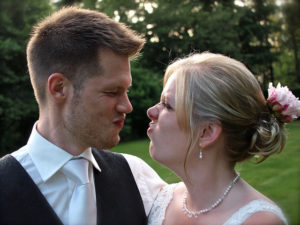
Talk about yourself, not your partner
This is one of the most important and most difficult shifts we have to make in order to prevent minor disagreements from turning into major fights. When you talk about the negative things you believe your partner has done, you automatically put them on the defensive. Defensive people defend themselves. They refuse to open up and listen to your point of you, or worse, they attack right back. However, when you talk about yourself, your own experience, and your feelings, it’s very hard to argue with that. Nobody can argue with you whether you were feeling sad or glad or mad. When you come at it from that perspective, it’s much harder to turn it into an argument. And it’s much easier for your significant other to listen and not feel attacked themselves.
Focus on one issue at a time
It’s tempting to tear into your partner for everything wrong they have ever done once you get going. But that is certainly destructive and not productive. If you are looking to solve a problem that has come up, you need to focus on that problem. If you’re looking just to give it to your partner, then throwing at them all their past offenses make sense – but it’s probably just going to make your problems bigger, not smaller.
Keeping to one issue is an especially challenging task if you have been sitting on a bunch of resentments for a long time, which is one more good reason why you should not do that. Bring up an issue when it bothering you and don’t sweep it under the rug. You’ll have a lot more success dealing with it that way than if you try to deal with all your issues all at once.
Leave out the personal attacks

These points, of course, are just the beginning of turning your explosive arguments into fair fights. There is much more to be said about this, which will perhaps be saved for a future post. If you find that you and your significant other have trouble discussing difficult issues or commonly end up in major arguments, give us a call today to find out how we can help you turn things around.
